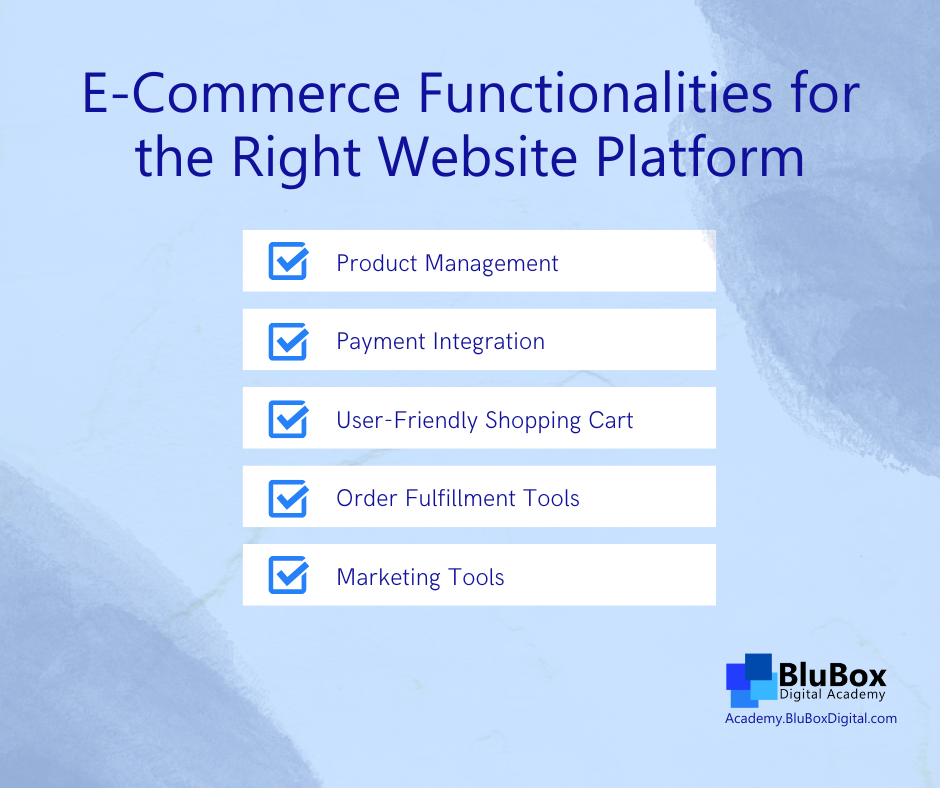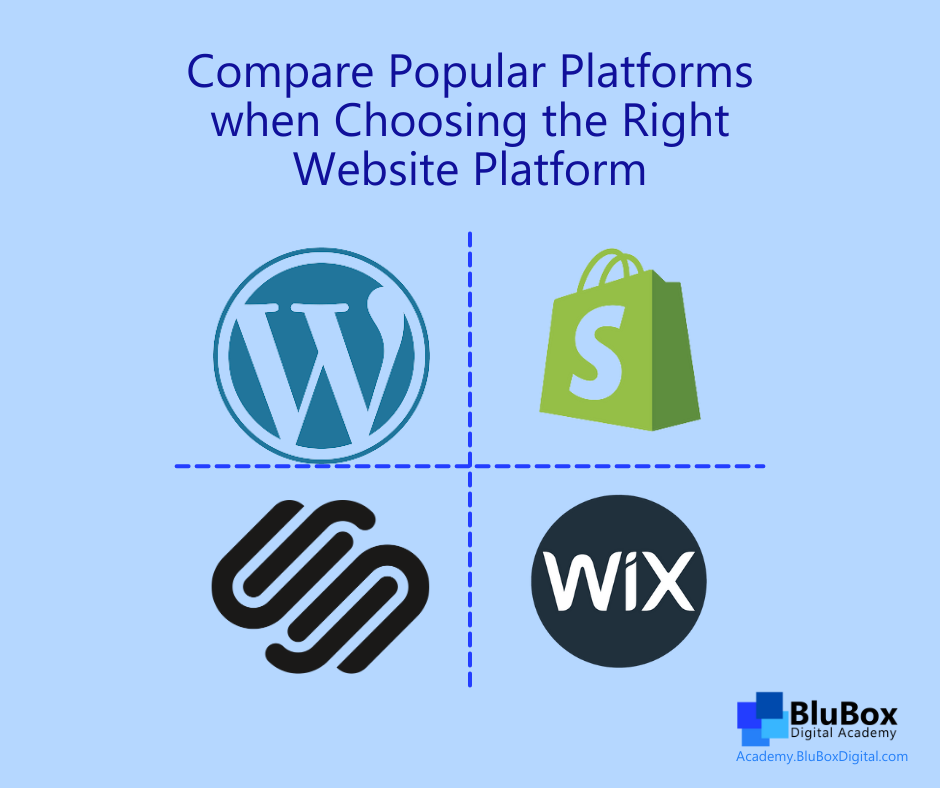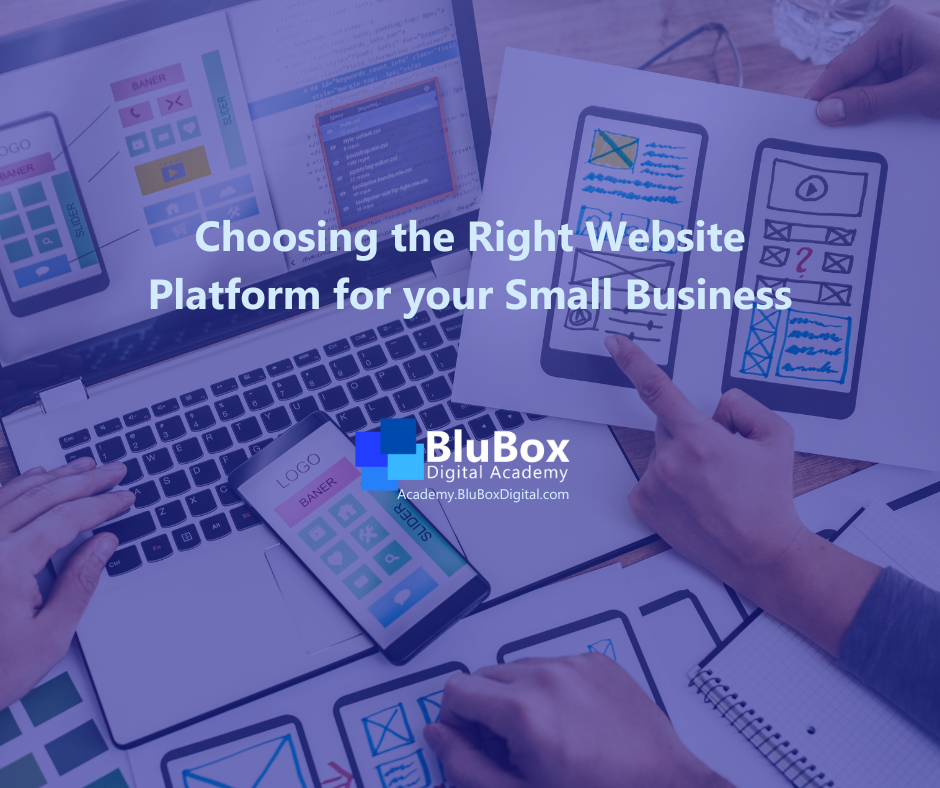Choosing the Right Website Platform
Building a website is a thrilling milestone for any business, marking your official entrance into the digital world.
But one of the most important decisions you’ll make is choosing the right website platform.
The platform you select sets the foundation for your online presence, influencing everything from design and functionality to security and performance.
Making the right choice when choosing the right website platform is important for your business’s online presence.
Define Your Website’s Purpose and Goals
The first step in choosing the right website platform is to clearly define the purpose and goals of your website.
Ask yourself: What do you want your website to achieve?
Are you showcasing your work, selling products, sharing information, or building a community?
Understanding the primary goal will help you narrow down the best platform for your needs.
Consider your target audience’s technical proficiency, browsing habits, and device preferences.
For instance, if your audience primarily uses mobile devices, a platform with strong mobile optimization is essential.
Also, think about the type of content you plan to publish.
Will you be sharing mostly text, images, videos, or a combination of these? The nature of your content can help guide your platform choice.
Don’t forget to factor in your budget and time constraints.
Different platforms come with varying costs and maintenance requirements, so it’s important to choose one that fits within your financial and time resources.
Focus on User Experience
When choosing the right website platform, user experience should be a top priority.
The platform should be easy to use for both you and your visitors.
A user-friendly platform allows you to manage your site without too much hassle, while providing your audience with a seamless browsing experience.
If you’re not tech-savvy, look for platforms that offer drag-and-drop features, making it simple to design and update your site without needing to code.
However, if you have some technical skills or access to a web developer, you might prefer a platform that offers more customization options and flexibility.
You’ll also want to consider the design capabilities of each platform.
If you have a strong design sense, a platform with extensive customization options might be ideal.
If not, choose one that offers beautiful, pre-made templates that you can easily tweak to fit your brand.
Choosing the Right Website Platform for Online Selling

If you plan to sell products or services online, choosing the right website platform with robust e-commerce features is important.
Look for platforms that support essential e-commerce functionalities such as:
- Product Management: Easily add, update, and organize your products.
- Payment Integration: Securely process payments through various gateways like PayPal, Stripe, or credit cards.
- User-Friendly Shopping Cart: Ensure a smooth and intuitive shopping experience for your customers.
- Order Fulfillment Tools: Manage orders efficiently with automated confirmations and shipping integrations.
- Marketing Tools: Utilize features like abandoned cart notifications to recover lost sales and promote repeat business.
Having these features built into your platform can make managing your online store much easier and more efficient, providing a better experience for both you and your customers.
Boost Your SEO and Visibility
Search engine optimization (SEO) is vital for ensuring your website gets found by potential customers.
When choosing the right website platform, make sure it supports strong SEO practices. Look for platforms that allow you to:
- Optimize Keywords: Easily add and manage keywords relevant to your business.
- Update Meta Descriptions: Write compelling meta descriptions for each page.
- Control URL Structures: Create clean, SEO-friendly URLs.
- Create and Submit Sitemaps: Facilitate easier indexing by search engines.
Some platforms offer more advanced SEO tools than others, so choose one that aligns with your marketing needs.
A reliable hosting provider with good technical support and high uptime is important for maintaining your website’s availability and performance, both of which are important for SEO.
Plan for Growth with Security and Scalability
Your website should grow with your business. When choosing the right website platform, consider its scalability and security features.
Make sure that the platform can handle increasing content and traffic as your business expands. Key security features to look for include:
- SSL Certificates: Encrypt data to protect your site and your visitors, especially if you’re handling personal information.
- Regular Backups: Automatically back up your website data to prevent loss in case of an issue.
- Security Updates: Keep your platform and plugins up-to-date to guard against vulnerabilities and threats.
You’ll also want to think about the platform’s ability to accommodate new features and functionalities as your business evolves.
A scalable platform ensures that you won’t outgrow your website’s capabilities, saving you the hassle of switching platforms down the line.
Compare Popular Platforms when Choosing the Right Website Platform

There are several popular website platforms, each with its own strengths and weaknesses. Here’s a quick overview to help you in choosing the right website platform for your business:
WordPress
WordPress is known for its flexibility and extensive customization options, making it suitable for a wide range of website types. It’s an excellent choice if you want complete control over your site’s design and functionality. However, it comes with a steeper learning curve and may require some technical knowledge or the help of a developer.
Squarespace and Wix
Squarespace and Wix are user-friendly platforms that offer stunning, professionally designed templates. They are ideal for simpler websites where ease of use and quick setup are priorities. These platforms are great for small businesses, portfolios, and personal sites, providing an intuitive drag-and-drop interface.
Shopify
If you’re focused on e-commerce, Shopify is a top choice. It offers robust tools for managing products, processing orders, and handling payments seamlessly. Shopify is designed specifically for online stores, making it easy to set up and run a successful e-commerce business.
Each platform has its own pricing structure, typically involving monthly fees with varying levels of service and features.
Consider what’s most important for your business and choose a platform that offers the best value for your needs.
Make an Informed Decision when Choosing the Right Website Platform
Choosing the right website platform requires careful consideration of your specific needs, goals, and resources.
Whether you prioritize customization, ease of use, or powerful e-commerce tools, there’s a platform out there that can support your business effectively.
By evaluating these factors, you can select a platform that not only fits your current needs but also grows with your business.
Remember, the platform you choose sets the stage for your online presence, so take the time to research and decide wisely.
A well-chosen platform will help you build a strong, professional website that attracts and engages your target audience, ultimately contributing to your business’s success.
Ready to take the next step in choosing the right website platform for your business? Check out our Business Websites course on the BluBox Digital Academy website and start building the perfect online presence for your business today!






